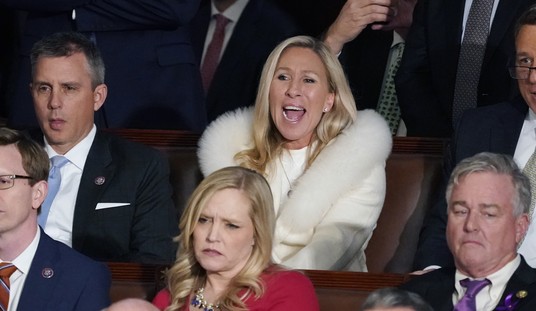When the framers of the Constitution thought about the future for American capitalism, they certainly didn’t think the government would be taking this giant leap that last night’s financial bailout represents.
We know it will cost us money, no matter what the politicians promise. As anyone in finance knows, dollars today are worth a lot more than tomorrow’s dollars, so the upfront cost should be kept as small as possible.
The question in the public’s mind is this: Exactly who are we bailing out? Why?
The why part is easier to answer. The CDO that is talked about is like you selling your car to Joe, but not getting any money today for it. Joe is going to pay you next year. As soon as Joe gets your car, he rents it to Jim. Jim doesn’t pay him, but offers to pay him monthly for the use of the car. Jim sells the car to a chop shop. The chop shop pays Jim a commission, and sells pieces of the car at a profit to Tim, Tom, Dick, and Harry. Harry buys Dick’s pieces, and puts together a new car — but has an accident. How is Joe going to collect? Who really owns the car? Of course it’s more complicated than that, but you get the idea. The government is going to bail out everyone, or pick a person in the chain.
The real issue the government should focus on is the credit market, not the stock market. The interbank market where banks and very large entities borrow and trade with one another is broken. Banks no longer trust the collateral that is being posted to trade with. Accounting standards are fuzzy, so they don’t know how to value collateral. Without the interbank market, the stock market fizzles. Eventually, it means that John and Jane Doe on the street cannot get credit that they desire to start or expand a business, or buy or fix up a home. The government in the past year since the credit crunch manifested itself, has put a band-aid on a problem that needs a tourniquet.
The government also needs to think about what regulation will look like in the future. The SEC is antique. It is using pencils and erasers to regulate a 21st Century marketplace. The OTC derivatives market is largely unregulated. It should stay largely unregulated, but the trading in it should be forced to go through a clearing house.
A clearing house will eliminate the counter party risk that Joe assumes when he sells his car. It will allow the trading to happen, but will have a system set up where payments and collections can be made to the correct parties. When the market goes crazy, the clearing house guarantees that things get sorted out appropriately. We avoid the panic of the last year.
It is questionable whether the bailout will do any good whatsoever. Many economics professors across the country have written about their skepticism. It can be argued that the free market capitalism that our forefathers embraced has served us well lately. Goldman was propped up by Warren Buffett. JP Morgan bought Bear Stearns and WAMU. Merrill Lynch was bought by Bank of America. Morgan Stanley converted to a commercial bank, and is certainly shopping for capital since they are still insolvent. Citibank is looking at Wachovia. All these instances are signals that the free market is working. Once something gets cheap enough, there is someone there to pick up the pieces and take a risk on buying it. Sometimes it takes bankruptcy to get there, but the market always wins. Government intervention usually just delays the inevitable.
We need to ask this question: If the government did nothing, what would happen? Certainly, stock market value would go down. People would realize that there will be a credit crunch coming that will affect business, so they will sell. They also may have a lot of their own savings in the equity market, so they will sell to get cash. Cash is less risky than holding stock. Some may draw out cash from their own banks, putting pressure on the banks to borrow from the Federal Reserve. This will drive up interest rates. Higher rates will incent people to keep their cash in the bank, to generate some return-as long as they feel the US banking system is stable. They should, because we have the FDIC. Some companies and banks will go bust. People will get hurt. The market will pick up the pieces, and reform them into new enterprises. It will be painful, and could take some time-no one knows how long.
Even with the bail-out, it still will be painful. Taxpayers will be on the hook for a lot of paper that the market cannot value even today. It may be profitable, but it might not be. If the bailout doesn’t work, we will see futher declines in the stock market and asset value than if we did nothing — so what ever they propose better be bullet-proof. Personally, I don’t have a lot of confidence in the Congress, Treasury, and Federal Reserve to cobble together a cohesive plan that covers all the bases.
With elections on the line, there is too much temptation to play politics and not do what is right for the market.
But still — perhaps the right thing to do would have been to listen to the lessons of Adam Smith and Milton Friedman and let the capitalistic market work.









Join the conversation as a VIP Member